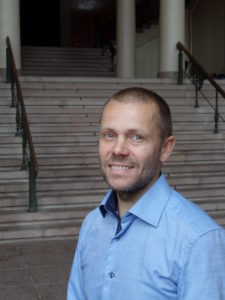By Rune Ellefsen, postdoc, University of Oslo.
The policing of radicalization has emerged as a new field of policy and policing in the Nordic countries during the last decade. It involves a fundamental shift in the societal response to individuals associated with radicalization or extremism.
Policing of radicalization aims to identify at-risk individuals by seeking out risk indicators before any crime is planned, prepared or committed. Some scholars claim that most deviant ideas and forms of behaviour are now depicted as possible indicators of radicalization in local policy documents of the largest Nordic countries.
In the past decade, a work logic has been established through national government policies that grants new responsibilities to state, private and civil society actors to collaborate across sectors to prevent radicalization and violent extremism. The implementation of these new responsibilities and practices rests on a pre-emptive logic that has been crucial for the creation of what has become in most Nordic countries a loose nation-wide apparatus for counter-radicalization. This has involved establishing a wide-reaching system for detecting and reporting signs of radicalization across all sectors of society, and structures for assessing and handling individuals thought to be at-risk or posing a risk.
This way of attempting to identify future terrorists by seeking out signs of radicalization is now a responsibility assigned to front-line practitioners in many Western countries. Assessed from a security perspective, this new mode of policing has seemingly enhanced Nordic nations’ ability to monitor, detect and manage radicalization. However, this shift has wider ramifications that deserve attention from Nordic criminologists.
Practitioners tasked with preventing radicalization are faced with the dilemma of walking the fine line between “mind policing” and the prevention of potential terror attacks. The precautionary principle inherent in the prevention of radicalization represents the idea of instigating efforts early on to forestall events that might lead to violent extremism in the future. Prioritizing preventive measures would, one could anticipate, imply a reduction in the use of criminal prosecution and reactive measures. However, the ways in which the police collect more intelligence on known criminals and potential perpetrators, survey and monitor suspicious behaviour, results, paradoxically, in more reactive forms of police work.
If the move to proactive intelligence-led police work triggers a parallel increase in reactive police work, the dominance of prevention will not entail replacing reactive and punitive measures but supplementing them. This implies a widened net of social control, in which a greater number of people are monitored for preventative purposes and brought into the criminal justice system. Norwegian police say that it is hard to know whether there are currently fewer radicalized people as a result of intelligence-led police efforts to prevent radicalization but conclude that more people at risk are uncovered and that measures are being directed towards more people.
The increased importance and impact of intelligence in the police seemingly blurs distinctions between their proactive and reactive measures and also those between preventive intelligence gathering and criminal investigation. In Denmark’s multi-agency approach to counter-radicalization, policing practices also extend into other sectors of the welfare system and blur the boundaries between security and other public services.
Scholars outside the Nordic region have already made evident numerous disputed consequences and dilemmas involved in expanding radicalization policing. The widespread use of intelligence methods in UK policing, as seen in the counter-terrorism PREVENT programme, means that all types of interaction between citizens and the police may be seen by citizens as an occasion for police intelligence gathering, potentially resulting in standards of trust and confidentiality being undermined.
Such developments also affect how the policing of radicalization is manifested and its ramifications. The evolution of radicalization policing in the Nordic countries will thus involve numerous issues and open up research areas of high relevance for criminologists in the coming years.
—
The post is based on the recent article Prevention of Radicalization as an Emergent Field of Plural Policing in Norway (Open Access). This work is funded by the Nordic Research Council for Criminology.

